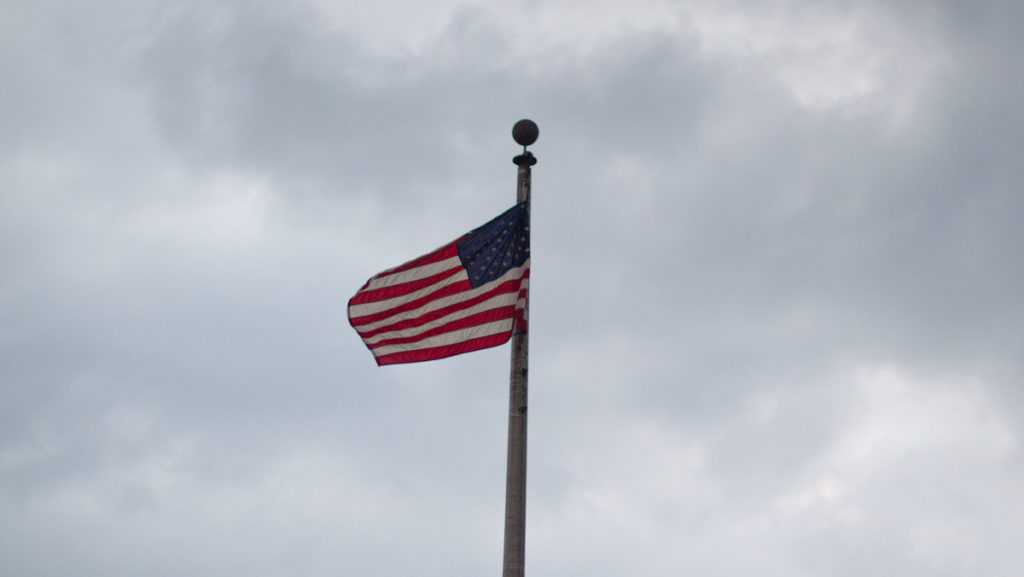The very first PowerPoint slide my History of Sports students see is Thucydides: “History is the philosophy learned from examples.” It usually takes me an entire semester, if that, to help students understand and appreciate this statement. This semester, over the past two weeks, President Donald Trump has given us all we can endure to recognize that Thucydides was right.
Trump’s attacks on ESPN’s Jemele Hill for expressing her own views, that he is and supports white supremacy, via her personal Twitter, reveals a leader whose skin is paper thin.
Fifty years ago, I began my undergraduate education at the University of Massachusetts Amherst, aspiring to be a sport journalist. Within three years, so-called race riots, political assassinations, Olympic protests and the disastrous Vietnam experience had altered my philosophy about the role sport plays in our society. By 1970, when the ancient Curry Hicks basketball arena was overflowing to capacity to watch the awesome skills of Julius Erving, the routine playing of the national anthem had become a veritable showdown of students and athletes — more than half of them — standing and turning their backs to the U.S. flag to confront the paying customers hurling insults and physical objects at those below their seats. It was not unusual to have the police escort the most violent fans from the premises. Strangely, the university never considered NOT playing the national anthem. I was hardly a radical, but as I learned through these “lived examples” I began to question the lessons from school and church and the Boy Scouts.
To address the present assault the president is directing at athletes utilizing their right to free speech to shine a light on social injustices in our society, I thank the Boy Scouts for teaching me the ACTUAL U.S. Flag Code and the ways to treat it with RESPECT:
- Never use the flag as advertisement — Trump should take off all those MAGA hats that use the flag
- Never display the flag horizontally except to cover a service person’s coffin — all sports organizations that display those flags on the field should cease and desist
- Never apply the flag to clothing or apparel — see example above
- Never apply the flag to athletic uniforms — the only organizations permitted to do so are the military, police officers and firefighters, the Boy and Girls Scouts of America and Little League of America
Most of the present additions to our pregame patriotic rituals arose in 1991 to 1992 during the first Gulf War. The nation was about to engage in its first serious shooting war since Vietnam. In the aftermath of Sept. 11, 2001, the expressions of hyper-patriotism took hold. Irving Berlin’s warmongering song “God Bless America” became our second, unofficial national anthem at the ballpark.
All of these events changed our “philosophy” about what it means to be an “American.” They serve to minimize what real patriotism looks like. In his tweetstorm, President Trump retweeted a completely false narrative about Pat Tillman, former NFL player, who was killed by friendly fire in 2004 in Afghanistan after he had very publicly came out in opposition to the U.S. involvement in Iraq. Tillman’s widow requested once again that people stop using her husband’s death for causes he would not support. And don’t mistake the NFL owners standing with their players as an endorsement of their views. These men are the oligarchs — many are Trump contributors — who are simply protecting their investments.
One would think that the Department of Defense’s statement about the respectful posture during the playing of the national anthem would be the final word. They stated explicitly that there is no requirement to stand or to place one’s hand over one’s heart. Kneeling, sitting, standing with head bowed and fist in the air are all acceptable ways to “honor America.”
Of course, the most effective way to expose the jingoists spreading lies is to call their bluff that sports and politics shouldn’t mix. To that end, why not simply abandon the practice? We don’t play the anthem before most church services or movies or concerts. The jingoists would have to find something else to be upset about, and those athletes who are concerned about issues of social justice could find alternative ways to bring those concerns to light.
Imagine an Ithaca College athletic event without the national anthem. Coaches could focus on their job and politically active student–athletes would be spared the worry of their activism being punished.














